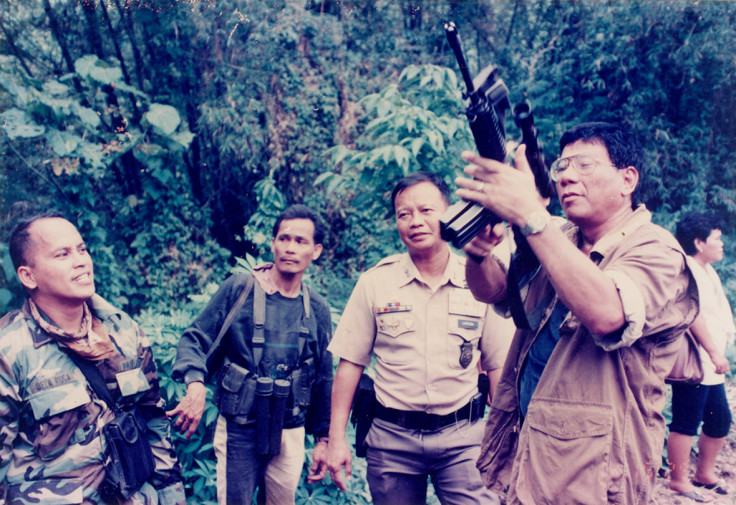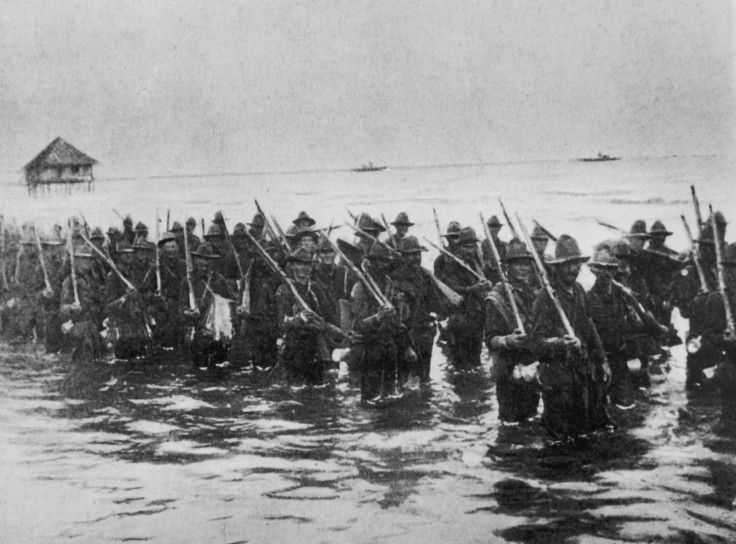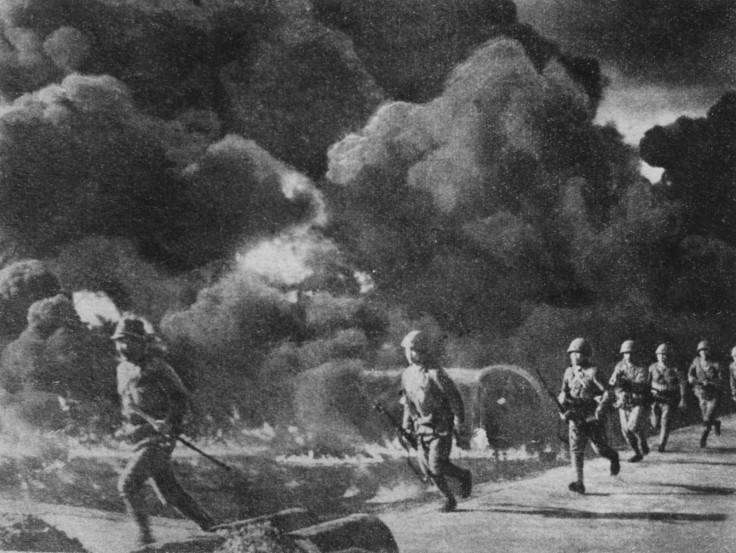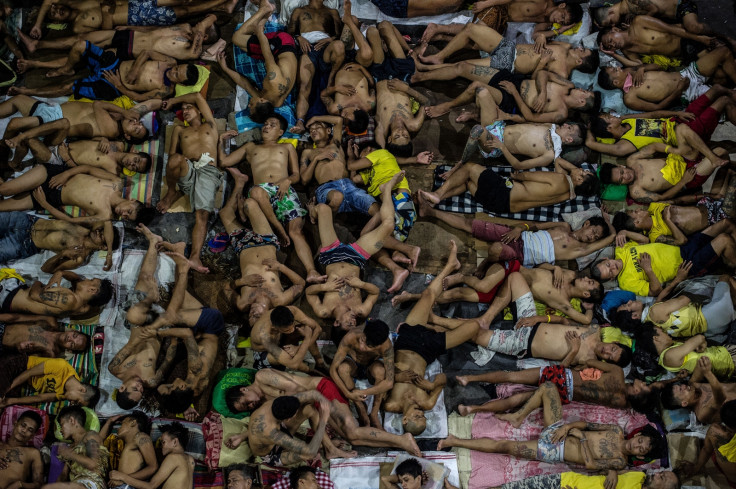How a history of colonial violence in the Philippines led to Duterte's bloody rule
After thousands of deaths, outsiders wonder how the leader still has overwhelming support. The answer is simple.
By September, at the tail end of the Philippine typhoon season, the islands have been drenched by storms of biblical proportions. I particularly remember the evening of 23 September 1972 as thousands of arrests, the cessation of some public works and increased military presence, confirmed the rumours that President Ferdinand Marcos intended to declare martial law.
We woke up to a new reality the next day – a Sunday. Policemen roamed our main boulevard with scissors, cutting off the long hair of local "hippies." Vehicles stopped at traffic lights for the first time that I could remember. The new semblance of authority and unprecedented adherence to police commands continued for several months. Bribery abated, and the new sense of order increased Marcos's approval rating.
Forty-five years later, Filipinos elected a president whose overt message is that he, too, intends to impose rule and order on a lawless society. Rodrigo Duterte was swept into office as a political maverick who promised to clean up Philippine society – particularly the nation's plague of drug abuse, as he had done as the mayor of Davao City.
Since becoming president, Duterte has not disappointed. He remains the unconventional leader whose targets of his harsh and off-colour remarks include American officials and the Pope. Human-rights organisations and journalists excoriate Duterte for the thousands of deaths and arrests of reported drug users and pushers, and publicly and unapologetically defends police officers accused of murdering suspected criminals.
By the end of November 2016, five months after Duterte's presidential victory, the Philippine National Police publicly stated that more than 4,600 drug pushers and users have been killed in its war against drug use.
The domestic media, including the long-standing national Manila Bulletin, have remained remarkably neutral in their criticism of Duterte's policies. Meanwhile, the Philippine Senate and other state agencies have been more outspoken against reported Duterte-approved execution squads. Internationally, most journalists are extremely critical of Duterte, including a major New York Times article from 7 December entitled "They Are Slaughtering Us Like Animals". Other foreign correspondents, usually with extensive experience in the Philippines, remain more measured in their assessment of Duterte. Adrian Chen's 21 November New Yorker article "When a Populist Demagogue Takes Power" is a good example of this.
Duterte's war on drugs has resonated with the Philippine people. The Dangerous Drugs Board, a policymaking body created in 2002, has received a boost in support. In 2004, the board published a report citing the statistic that 6.7 million out of a population of 100 million people in the country were using illicit drugs. President Duterte's crackdown has also translated into a 31% decrease in crime.
Much to the chagrin of his critics, President Duterte enjoys an extremely high national approval rating after following through with his promise to be tough on crime. This persists despite Duterte's assertion on 12 December that he himself has taken part in the killing of suspected criminals. Many outsiders wonder how is it that this "bloodthirsty leader", as Western media have described him, continues to enjoy overwhelming support from his constituents. The answer is simple.

Philippine history is uniquely complex. Though somewhat ethnically and linguistically diverse, Filipinos do share a long history of oppression and exploitation. From around the mid-16th century until 1898, the Philippines was part of the Spanish Empire. Its geographical distance from the New World and Iberian Peninsula made the South East Asia colony an extremely undesirable posting. Hopes for an Asian El Dorado vanished as quickly as it was imagined, and the islands became a hated hellhole for middle- to low-ranking Spanish bureaucrats.
The natives were described as indolent and ignorant by most of the Spanish priests, soldiers and officials, who subsequently treated the indigenous peoples with little to no respect. There is a reason that Spanish did not become the lingua franca in the islands, even though Spain ruled there much longer than in the country's American colonies. Some Spanish deemed Filipinos not good enough to even speak the language of their political and religious oppressors.

On the verge of ousting their three-centuries-long colonial master in 1898, Filipinos learned that Spain had passed the imperialist baton to the United States. Ten million Filipinos were sold for $20m, and the US jumped on to the colonial gravy train with the promise of benevolent assimilation. Unlike Spain, America intended to make Filipinos into "little brown brothers" who learned the colonial mother's language. Despite the reported selfless motives of American colonial employees, Social Darwinism's racial prejudice characterised their worldview.
Like a global chess game, Filipinos were pawns in a world war with little power to determine their own destinies
Japan forcibly replaced America's Philippine rule during 1942. Like a global chess game, Filipinos were pawns in a world war, with little power to determine their own destinies. Many Filipinos fought alongside Americans, correctly predicting that the Japanese would be even more brutal and racist than either the Spanish or Americans. Following the bloody battles on the islands and its surrounding waters, the Philippines was granted independence, only to then be used as a geopolitical Asian headquarters for American forces during the Cold War. The substantial and numerous Philippine-based American military installations were finally closed at the end of 1992.

Through the four-and-a-half centuries of outside dominance, foreign officials created and perpetuated a tiny native elite class that through collaboration came to dominate the islands' social and economic landscape. Though not a Confucian-based society, the idea of deference in a very schematised system placed the vast majority of Filipinos in roles of subservience. They were forced to rely on the mercy of the rich, landlords, and religious leaders.
In short, it is not the typhoon winds that have most brutally battered Filipinos. Rather, it is both internal and external forces that impose assumptions of patron-client relationships, nepotism and a culture of professional and political cronyism.
The list of recent Philippine presidents include two children of former presidents, a military leader and a movie star – its own version of George W Bush, Dwight Eisenhower and Ronald Reagan. But for once, the Philippines struck before the US with the first 2016 hard-talking outsider to be voted into the nation's highest office: Duterte, not Donald Trump. But unlike Trump, Duterte began with a more than 90% approval rating after several months in office.

President Duterte's popularity is due, in part, to his public declarations that he intends to stamp out a drug problem that is crippling the young and old. He has also made it clear that the Philippines no longer needs the permission of the US, UN, Catholic Church or human-rights groups to be proud of its autonomous existence. It does not, he says, need the outside world to give its approval for the Philippines to exist.
Nonetheless, the Philippines would have to navigate the various forms of criticism. For example, on 20 December 2016 the renowned folk singer James Taylor – whose music is extremely popular in the Philippines – announced that he was cancelling his February 2017 Manila concert, noting that "I don't think of my music as being particularly political, but sometimes one is called upon to make a political stand." Still, the Philippine Tourism Secretary, Wanda Teo has previously spoken of plans to double the number of tourists to the Philippines for 2016, for which the country relied heavily on warmer relations with China. It is now hoped that three million Chinese are to visit the Philippines in 2017.
Many question whether Duterte's popularity and policies will continue. It is difficult to maintain the intensity of any programme, and the deeply ingrained practices in Philippine culture may point to a return to business as usual. But Duterte could be different to past leaders. Many hope so. History, however, is not on the president's side. It was only a few months after Marcos declared martial law that policemen on my street put away their scissors, accepted bribes and we grew out our hair again.
Shelton Woods is a Professor of East/South East Asian History at Boise State University, Idaho. He grew up in Baguio City in the Philippines.
© Copyright IBTimes 2025. All rights reserved.






















